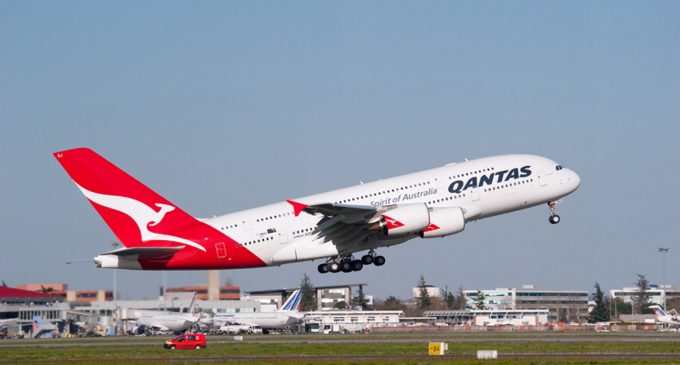Under pressure Qantas boss Alan Joyce has stepped down early and will leave tomorrow, bringing forward his retirement by two months. It follows a rocky couple of weeks for the national carrier and its controversial boss.
New CEO Vanessa Hudson will assume the role of Managing Director and Group CEO effective 6 September 2023.
“In the last few weeks, the focus on Qantas and events of the past make it clear to me that the company needs to move ahead with its renewal as a priority,” the Joyce said in a statement.
“The best thing I can do under these circumstances is to bring forward my retirement and hand over to Vanessa and the new management team now, knowing they will do an excellent job.

“There have been many ups and downs, and there is clearly much work still to be done, especially to make sure we always deliver for our customers,” he said. “But I leave knowing that the company is fundamentally strong and has a bright future.”
The announcement that Joyce has stepped down follows the head of the Australian Competition and Consumer Commission seeking a record penalty in its legal action against Qantas over allegations tickets were sold for cancelled flights.
ACCC chair Gina Cass-Gottlieb last week revealed she is seeking record fines of more than $250 million, which is twice the current record penalty.
And it was revealed on Friday that Joyce had received $10 million as a 1,738,500 bonus and long-term incentive in shares in Qantas. Based on the current Qantas share price of about $5.83, the stock is worth more than $10 million to the outgoing CEO.
Joyce will step down early after 22 years with the airline, including 15 as its CEO.
Record penalty sought as boss steps down early
News that the Qantas boss will step down follows the ACCC alleging Qantas engaged in false, misleading or deceptive conduct in advertising and selling tickets for more than 8000 flights between May and July 2022 that the airline had already cancelled. In 2021, it received about 1300 complaints related to cancelled flights.
Each breach carries a maximum penalties of either $10 million – three times the total benefit obtained from the alleged behaviour – or 10 per cent of Qantas Group’s annual turnover, whichever is the greater.
Qantas said it “takes these allegations by the ACCC seriously”. But it noted the period examined “was a time of unprecedented upheaval for the entire airline industry”.
Qantas also removed the expiry date on Covid travel credits that were due to run out at the end of this year, succumbing to increasing pressure from passengers. Customers with Covid credits can request a cash refund.
The announcement came on the same day the Australian Competition and Consumer Commission launched legal action in the Federal Court of Australia alleging Qantas Airways engaged in false, misleading or deceptive conduct by advertising tickets for more than 8000 flights that it had already cancelled but not removed from sale.
“We’re doing this because we’ve listened,” Qantas Group CEO Alan Joyce said in a video of the Covid credits. “We know the credit system was not as smooth as it should have been. And, while we’ve improved it recently, and extended the expiry date several times, people lost faith in the process.
“We hope this helps change that.”
Federal Court action over bookings for cancelled flight
That news followed ACCC allegations Qantas sold tickets for flightcs scheduled to depart between May and July 2022, which had already been cancelled. The ACCC action alleges that Qantas kept selling tickets for those flights on its website for an average of more than two weeks, and in some cases for more than a month.
It also alleges that, for more than 10,000 flights set to take off between May and July 2022, the airline failed to notify ticketholders their flights had been cancelled for an average of 18 days.
“We allege that Qantas’ conduct in continuing to sell tickets to cancelled flights, and not updating ticketholders about cancelled flights, left customers with less time to make alternative arrangements and may have led to them paying higher prices to fly at a particular time not knowing that flight had already been cancelled,” ACCC chair Gina Cass-Gottlieb said in a statement.









